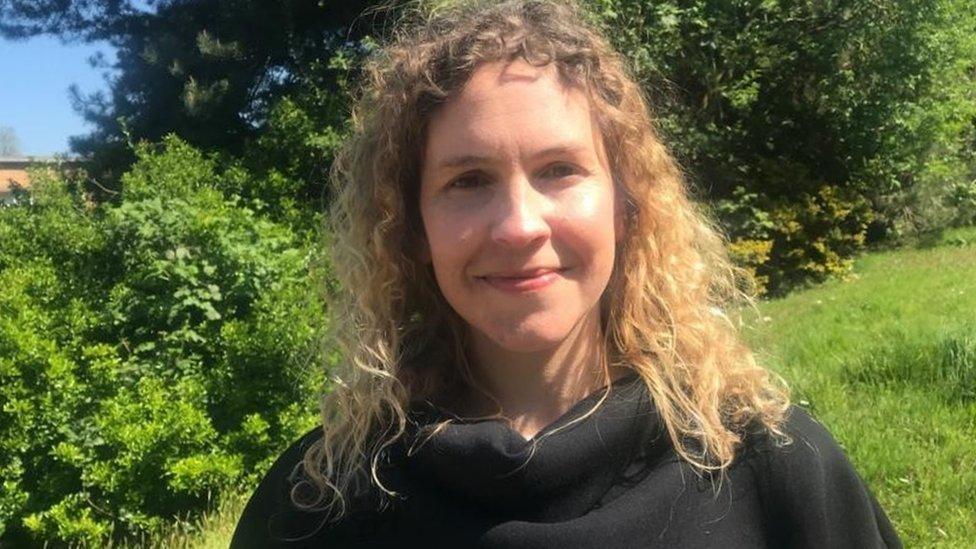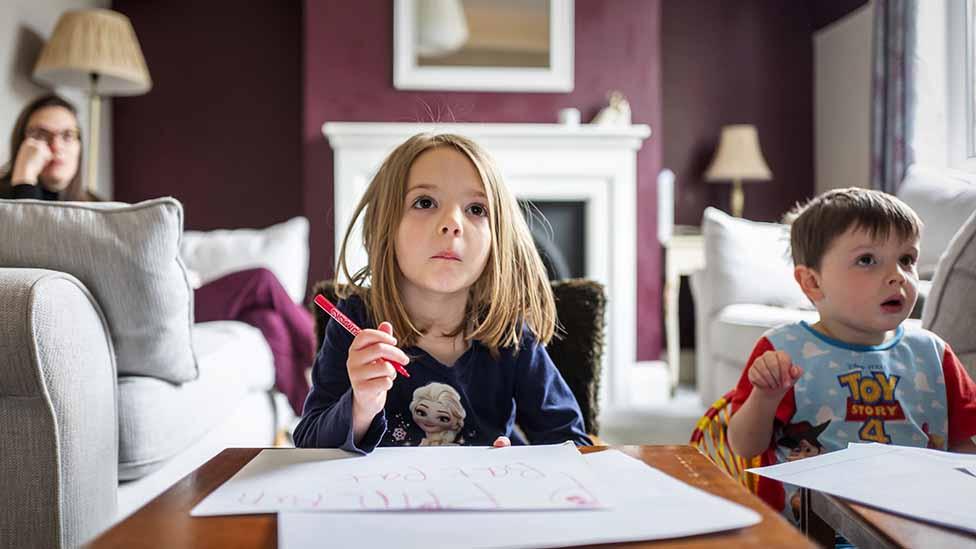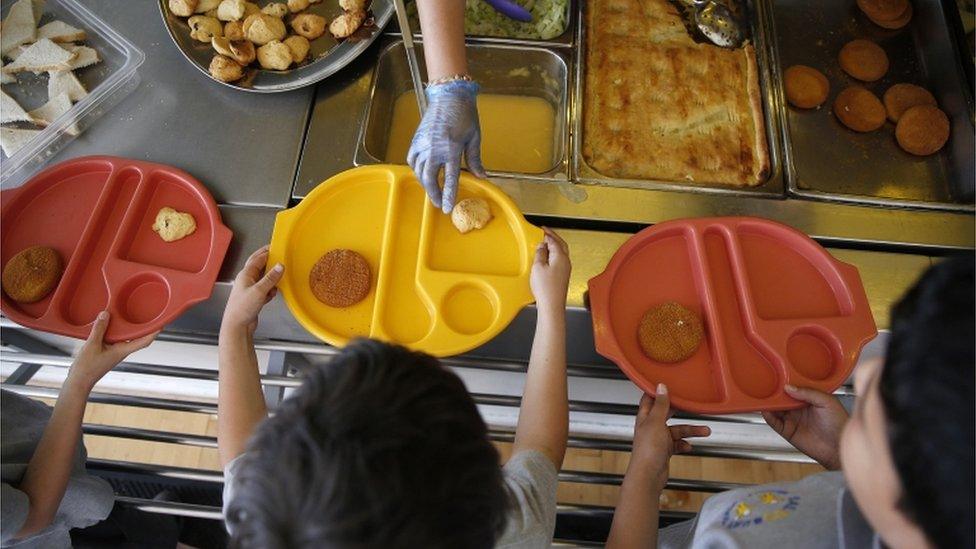Coronavirus: Young homeless stressed in lockdown
- Published

Llamau teaches literacy, numeracy and life skills
"We're not going to give up on them and I hope they won't give up on us."
Many of the young people tutored by Anna Tuhey from youth homelessness charity Llamau are from difficult backgrounds.
Not all are homeless but some have a history of substance misuse, mental health problems, behavioural disorders or have been in trouble with the police.
All have struggled in other types of education but are signed up to the charity's Learning 4 Life courses which are now having to be run from a distance as a result of the pandemic.
Trying to keep the contact and learning - literacy, numeracy and life skills - going in view of the barriers these 16 to 24-year-olds already face is "extremely challenging".
But the costs of not doing so are potentially significant for their life chances.

Anna Tuhey says access to technology has been an issue
"This is a stressful situation for anyone, but for our learners who've already got mental health or physical health problems this has thrown them in a bit of a downward spiral," said Ms Tuhey.
"For them the concept of even being able to get out of bed in the morning is just a bit too much.
"So I would say that out of all our learners less than 10% would be able to just immediately go into that routine of just getting up and carrying on with some work from home."
The first thing Ms Tuhey had to do was establish the young people on her course were safe - only then could they think about carrying on with learning.
"Some of them come from quite chaotic homes. Some of them live in homeless projects.
"Some of them would share a room with siblings or would be in perhaps a project where there are a lot of other young people coming in and out so they wouldn't have a space to work".
Access to technology has been a problem, and the tutors have checked they have access to phones which have credit and are being charged.
They maintain contact through phone calls, instant messaging and a monthly postal delivery of work books.
"Despite the fact that they clearly find this very difficult, I think they do appreciate the fact we're still here," Ms Tuhey said.
"The volume of work won't be the same, but I think that they can see that we're not going to give up on them and I hope they won't give up on us. I am hopeful of that".
There are 75 young people on the courses run from several of the Cardiff-based charity's centres across Wales.
Head of learning, training and employment at Llamau Mark Willmore thinks that so far around 80% are still keeping contact with their tutors.
"We're expecting that to dwindle over the coming weeks," he said.
"They feel safe coming to us on a daily basis, it gives them structure.
"We provide a warm meal for them everyday so when they're not having that facility to come to on a daily basis then they are slipping potentially back into some of the routines they were presenting with before they came to us," he said.
"When they haven't got the need to come into a centre, to catch a bus or to catch a train or to walk in to us then it's very easy not be ready to start learning at 10 o'clock in the morning," said Mr Willmore.
"The longer this period has gone on, we've found in some instances that they're slipping back into not waking up until two, three, four in the afternoon and our tutors are having to adapt to that in order to ensure that their learning is still going on during this period in time."
The charity is worried that it could lead to demotivation and a drop in self-esteem, as well as loneliness and isolation.
But it is doing its best to maintain contact.
"It's going to be a challenge but we will continue to try," said Mr Willmore.
- Published20 April 2020

- Published20 April 2020

- Published20 April 2020

- Published18 April 2020
